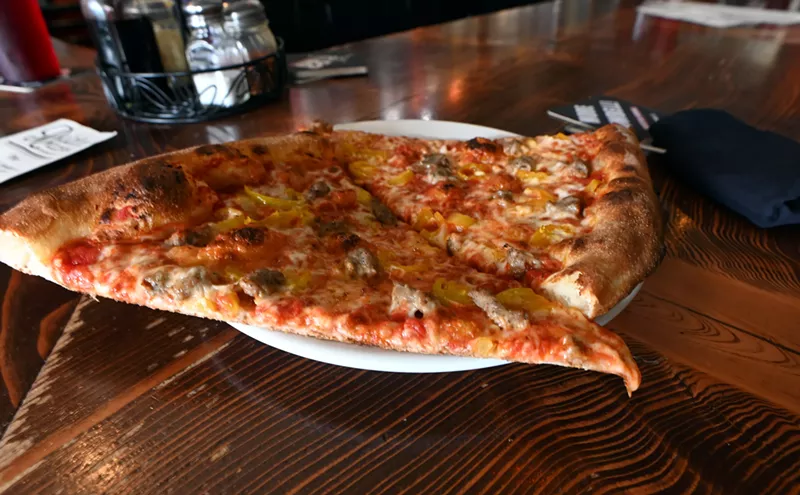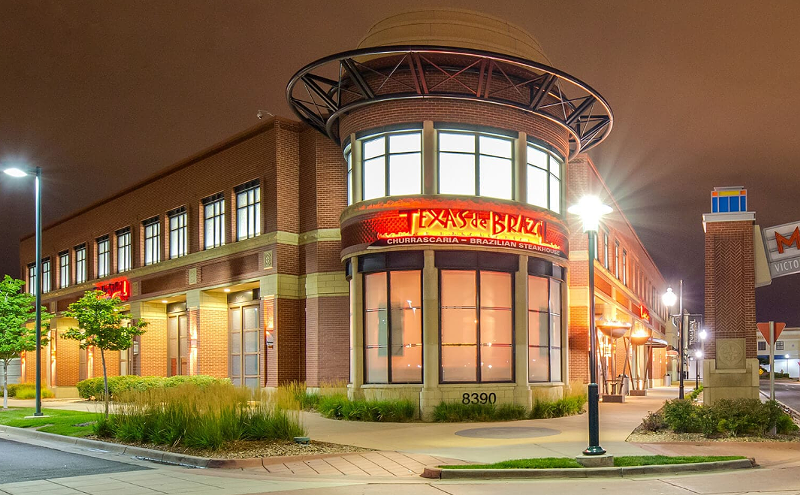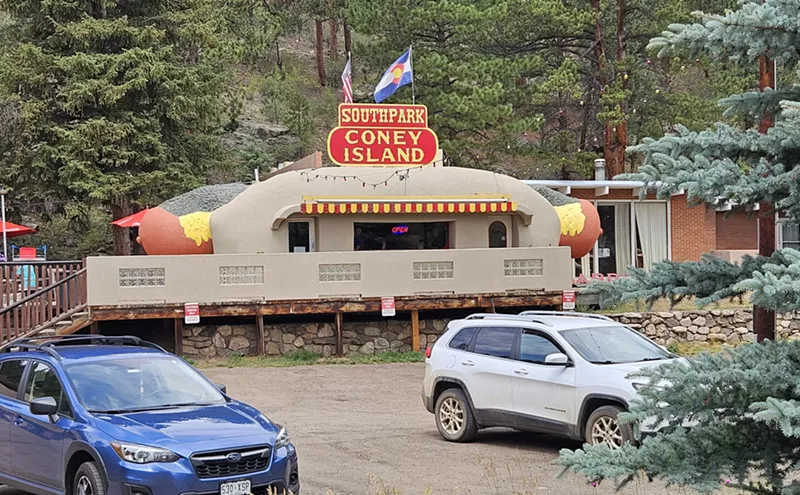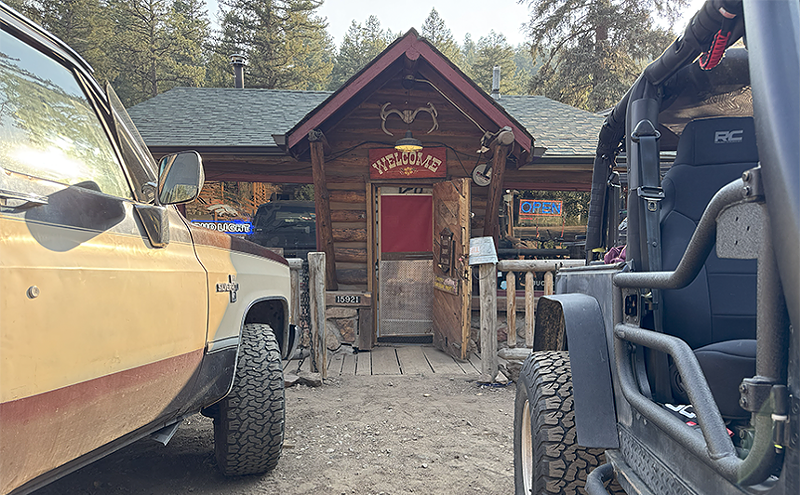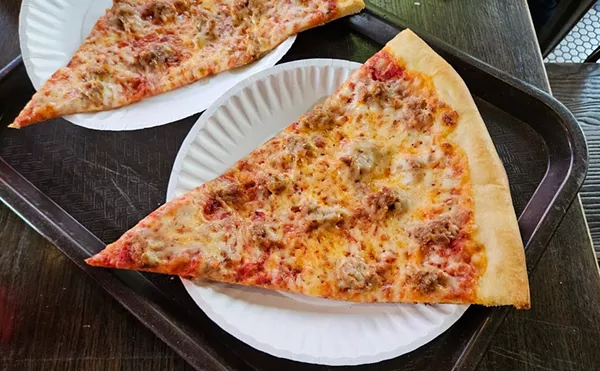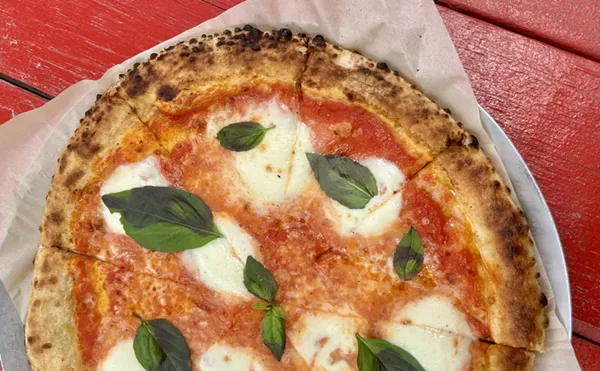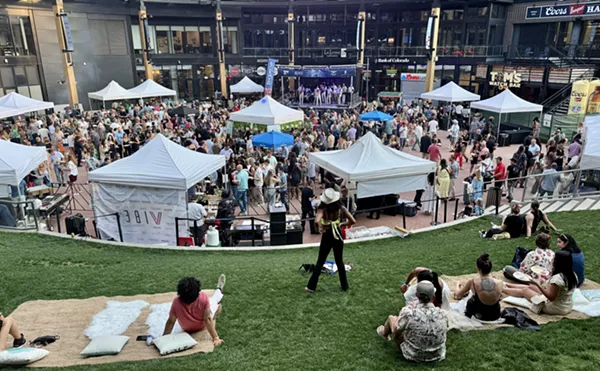I love restaurants. Some of my fondest memories are of eating in or cooking at a bustling restaurant. To me, they’re places of whimsy, culture, commotion, combustion and endless enchantment. They’re sharply designed habitats of make-believe, temples whose holy promises are fulfilled with tantalizing plates of food washed down with an infinite variety of elixirs. In these houses of worship, one can feed the soul, at times to the detriment of the body.
I grew up working in restaurants, eventually owning a chunk of one. Most of my life has been dedicated to the idea that restaurants and bars are where a society’s pulse is felt the strongest. Restaurants, at their best, are where people from many walks of life huddle shoulder to shoulder to feast, booze, cheer, debate, break up and make up. They’re where countless have met lifelong partners or found comfort in a partner for the night.
Restaurants are a place of fantasy, where time can stop. They whisk our minds away from our daily toils. From dingy watering holes to supercharged houses of haute cuisine, I place all on a pedestal. They’re where we know our money can buy happiness, if only for a couple of hours. Any accountant who has rifled through my bank statements from the last ten years scolds me for how much of the little money I’ve made has ended up in a till.
The truth is, though, restaurants fucking suck. For those who have lived their lives in the industry, it’s hard to hide the emotional, physical or financial wounds we’ve endured. Built on a historically rotten foundation of thin to nonexistent margins, many restaurants are houses of cards. They teeter constantly on the brink, often only held together by a mix of sheer will and good luck.
As a general rule, I find restaurant people to be as gifted as they are hard-headed.
Working in one, be it the busiest place in town or the shop that can barely afford to keep the lights on, is a daily battle, a constant bombardment of visible and invisible obstacles. One day there might be hot water to wash greasy pots — then the water heater explodes, soaking the basement. The manager might have to then bribe the dishwasher to ensure they stick around to scrub those pots with ice-cold water. Or a customer might come in and feel like the friendly server is flirting with them, not merely doing their job. Emboldened by wine, they might touch the server suggestively, forcing the owner to escort that patron out the door, leaving their bill unpaid.
That’s a loss of dignity for the server and a loss of revenue for the business. Maybe the line cook fancies the cooking wine more for his gullet than as an ingredient, creating the conversation of whether to fire them or to remove all wine from the kitchen. Perhaps the chef works a hundred hours a week, losing agency over their mind, body and soul as they labor tirelessly for the pleasures of others.
Restaurant people are not like other people. Many of us have sordid pasts and can’t find work elsewhere. Some of us think the regular 9-to-5 is the Ninth Circle of Hell, while others are extremists who thrive in the industry’s harsh environment. While generous and hospitable, they are often egocentric, strong-willed and occasionally masochistic. We don’t quickly burn out from a constant carpet bombing of unknown unknowns. Plate spinning and multi-tasking is our second nature. We expect the unexpected. And it’s just the way we like it.
We are improv artists who never tire of the stage. We’re tinkerers. We’re wannabe MacGyvers who get a thrill out of jerry-rigging our way through the day. We live to overcome the impossible. If the oven is broken and we have to figure out how to cook Beef Wellington without it, well, that’s just the way we like it. The produce order is late and we only have an hour to get ready for a fully booked dinner service — it’s just the way we like it. If we left work at 1 a.m. after a night of banging out hundreds of dishes only to have to come back at 6 a.m. to prep brunch, it’s just the way we like it. We like it because we lean into the challenges life offers. We throw our whole weight against them every day. We know that restaurants suck, but we love them anyway.
Of course, everything has changed in 2020. Now with the world at large suffering, our collective reality has become an acidic stew of tragedy and diminished trajectory. The American dream of a limitless sky has been revealed to be a thinly veiled, perforated construct. We are face-to-face with the ever-evolving abnormal being our new normal. And we all know there is no going back. Whatever life was before, it will never be again.
We face what might be our hardest challenge: remaining relevant.
Restaurants, the front lines of comfort, are on a seemingly hopeless roller coaster, most having been forced to shutter, then reopen as they adapt, adjust and reinvent at a feverish pace. With our eager guests now mostly stuck at home baking sourdough and learning to ferment their own kimchi, we face what might be our hardest challenge: remaining relevant. What was once arcane culinary knowledge is now democratized, thanks to social media. People have learned they are more than capable of preparing delicious epicurean fare at home, be it through a meal kit, a basket of produce from their local CSA or from scouring the big-box store for a bulk discount on whole chickens. The reliance on restaurants to provide experiential cuisine is diminishing. Restaurants are becoming obsolete.
What’s more: The defeatism felt by the industry, though just, is palpable to the customers. Quality across the board is suffering because those who serve are suffering. Much of the food and limited service provided are imbued with woe, on display in lackluster preparations and interactions. The fantasy is over. And yet it is the ability to provide that fantasy that is the restaurant’s most valuable tool. More than ever, the consumer desires escapism at a price point that feels justified. They want substance served along with sustenance. Be it with a to-go box, at a pick-up window, or during now rarefied sit-down dining, customers want to be wowed. They want to be ushered away from the omnipresent harshness of reality. That is what they are really paying for.
Quality across the board is suffering because those who serve are suffering.
The simple act of gregariously greeting guests can make all the difference in the perceived value of an experience. The more we are deprived of in-person social stimulus, the more our hearts ache for it. The value of ambience cannot go understated. Good tunes, blasted on high, can inject vigor into a solemn space. Most important, what we serve to our guests must never suffer from the burdens of the outside world.
We must continue to draw the line in the sand; we must be obsessive about the products we use, the way we prepare them and how we present them. Come hell or high water, we must continue to act as stewards of the little details. As we all know, the details make up the big picture. And life’s big picture is in dire need of a new coat of paint. We cannot control what happens outside our four walls, but we can continue to pour our love into our food and showcase our souls in our service.
If restaurants are to continue to exist, they must evolve, update and upend, all while delivering an experience that is second to none. Regardless of how many waves crash on our beach, we must take care to protect the line in the sand. Pandemic be damned, the old adage remains true: You are only as good as the last dish you served. This charge is not fair, but it is the actuality in which we live. Adversity is nothing new to us. We thrive on it. We feast off of it. We’re used to being up against a rock and a hard place, then wiggling our way through it.
In fact, it’s just the way we like it.
Shane E. Lyons is a chef, entrepreneur and hospitality consultant. He cut his teeth as the executive chef of Nosh and cooking in New York City before launching Distilled New York (now American Whiskey TriBeCa). Lyons consults with operations across North America, most recently acting as the on-camera food stylist for season four of the TV show Yellowstone.
Westword frequently publishes essays and op-eds on matters of interest to the Denver community on westword.com on weekends. Want to submit one? Send it to [email protected], where you can also comment on this piece, which first appeared in the Colorado Springs Independent.

Audio By Carbonatix
[
{
"name": "GPT - Billboard - Slot Inline - Content - Labeled - No Desktop",
"component": "23668565",
"insertPoint": "2",
"requiredCountToDisplay": "2"
},{
"name": "STN Player - Float - Mobile Only ",
"component": "23853568",
"insertPoint": "2",
"requiredCountToDisplay": "2"
},{
"name": "Editor Picks",
"component": "17242653",
"insertPoint": "4",
"requiredCountToDisplay": "1"
},{
"name": "Inline Links",
"component": "18838239",
"insertPoint": "8th",
"startingPoint": 8,
"requiredCountToDisplay": "7",
"maxInsertions": 25
},{
"name": "GPT - 2x Rectangles Desktop, Tower on Mobile - Labeled",
"component": "24956856",
"insertPoint": "8th",
"startingPoint": 8,
"requiredCountToDisplay": "7",
"maxInsertions": 25
},{
"name": "Inline Links",
"component": "18838239",
"insertPoint": "8th",
"startingPoint": 12,
"requiredCountToDisplay": "11",
"maxInsertions": 25
},{
"name": "GPT - Leaderboard to Tower - Slot Auto-select - Labeled",
"component": "17676724",
"insertPoint": "8th",
"startingPoint": 12,
"requiredCountToDisplay": "11",
"maxInsertions": 25
}
]


